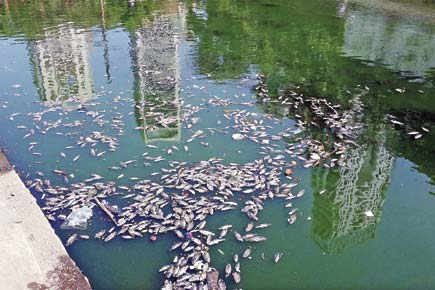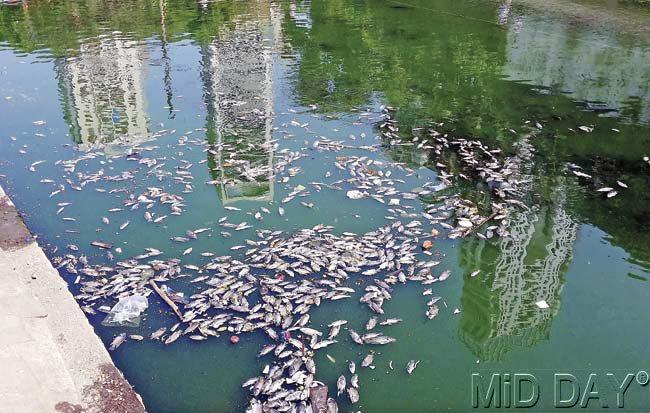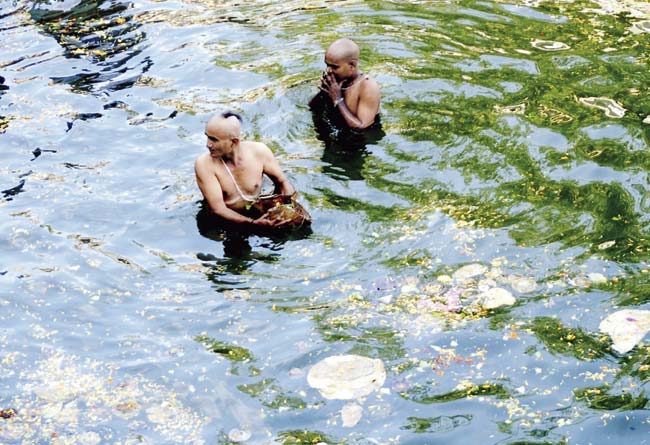Mukund Datar, manager of the Gaud Saraswat Brahmin Temple Trust, said that the fish had died by consuming offerings immersed during Pitru Paksh

Hundreds of dead fish were found floating at the Banganga Tank in the Walkeshwar temple complex yesterday, raising speculations that the Hindu rituals during Pitru Paksha were responsible for their death.

Hundreds of dead fish were spotted floating at the Banganga Tank in the Walkeshwar temple complex on Tuesday morning. Pic/Bipin Kokate
ADVERTISEMENT
Pitru Paksha is a 15-day period during which Hindus pay homage to their ancestors, especially with food offerings. According to the trustees who look after the Walkeshwar temple and the tank, those very food offerings my have led to the demise of the fish.

Several Mumbaikars made food offerings along with their prayers at the Banganga Tank during Pitru Paksh in September. File pic
“Every year, after Pitru Paksha, the fish die in this way. During Pitru Paksha, thousands of people perform puja, and pay tribute with flowers and flour. All these things were immersed in the tank.
Because of this, pollution increases and the fish die every year,” said Mukund Datar, manager of the Gaud Saraswat Brahmin Temple Trust, which maintains the historic tank in the Malabar Hill area.
“I had complained about this earlier, and had demanded that puja should not be performed at the tank, but the authorities did nothing. I have also suggested to BMC’s D ward (Grant Road, Malabar Hill) officers that they can make an artificial pond for this purpose, but they didn’t do anything either.
This year, the BMC managed to control the crowd a little bit, but this whole practice should be stopped permanently,” added Datar. This year, Pitru Paksh ended on September 24, but a local resident, Vimala, suggested that the rituals alone should not be blamed for the mass death of the fish.
“Every year after Pitru Paksh, the fish in this tank consume the flour that is immersed there. This is the main reason behind their death. This year, the temple trust started cleaning the tank late, which is responsible for the death of more fish,” she said.
To make matters worse, sewage lines from several houses near the temple complex connect directly to the tank, further increasing the pollution there. Datar, on the other hand, claimed that cleaning the tank had become difficult due a technical glitch. The tank is supposed to be cleaned every 10 to 15 days.
He explained that the tank’s water and all the contaminants are drained through a spot in the centre of the tank, through a sluice gate of sorts. However, the gate is not working properly, and the temple trust has had problems unlocking it.
“Since this tank has come under ASI’s (Archaeological Survey Of India) jurisdiction, they have not given us permission to do maintenance work, because of which cleaning has also been stalled. On behalf of the trust, I wrote a letter to them four months ago, but they have not responded yet,” Datar added.
 Subscribe today by clicking the link and stay updated with the latest news!" Click here!
Subscribe today by clicking the link and stay updated with the latest news!" Click here!







